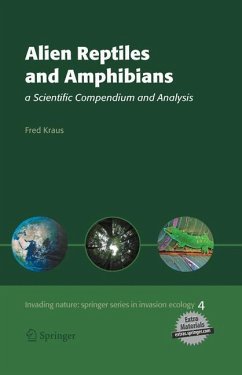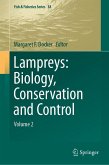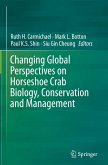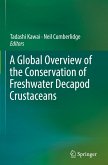Transportation of species to areas outside their native ranges has been a feature of human culture for millennia. During this time such activities have largely been viewed as beneficial or inconsequential. However, it has become increasingly clear that human-caused introductions of alien biota are an ecological disruption whose consequences rival those of better-known insults like chemical pollution, habitat loss, and climate change. Indeed, the irreversible nature of most alien-species int- ductions makes them less prone to correction than many other ecological problems. Current reshuffling of species ranges is so great that the present era has been referred to by some as the "Homogocene" in an effort to reflect the unique mag- tude of the changes being made. These alien interlopers often cause considerable ecological and economic d- age where introduced. Species extinctions, food-web disruptions, community alte- tions, ecosystem conversion, changes in nutrient cycling, fisheries collapse, watershed degradation, agricultural loss, building damage, and disease epidemics are among the destructive - and frequently unpredictable - ecological and economic effects that invasive alien species can inflict. The magnitude of these damages c- tinues to grow, with virtually all environments heavily used by humans now do- nated by alien species and many "natural" areas becoming increasingly prone to alien invasion as well. Attention to this problem has increased in the past decade or so, and efforts to prevent or limit further harm are gaining wider scientific and political acceptance.
From the reviews:
"In this volume, Fred Kraus offers the definitive literature-based treatment of the subject. Kraus' opus will be of great interest to a wide range of scientists, land managers, and policy makers..." (Herpetological Review, 2011, 42(2), 306-309)
"This volume is the first to truly analyze the effects of herpetological invasions. The detail and phenomenally exhaustive survey of an ever-growing literature are impressive, and....should be required reading for every herpetologist." (IRCF Reptiles and Amphibians, Vol.16 (3), September, 2009)
"This is a comprehensive treatise on invasives, a problem which has captured the attention of ecologists just as the issues of endangered species and extinction probability did a generation ago. ... the text is eminently readable and instructive, with extensive documentation of the impact and clear guidance for future management to prevent, detect, and control invasions. ... includes more than 4, 000 references. Summing Up: Recommended. All collections." (J. Burger, Choice, Vol. 46 (11), July, 2009)
"In this volume, Fred Kraus offers the definitive literature-based treatment of the subject. Kraus' opus will be of great interest to a wide range of scientists, land managers, and policy makers..." (Herpetological Review, 2011, 42(2), 306-309)
"This volume is the first to truly analyze the effects of herpetological invasions. The detail and phenomenally exhaustive survey of an ever-growing literature are impressive, and....should be required reading for every herpetologist." (IRCF Reptiles and Amphibians, Vol.16 (3), September, 2009)
"This is a comprehensive treatise on invasives, a problem which has captured the attention of ecologists just as the issues of endangered species and extinction probability did a generation ago. ... the text is eminently readable and instructive, with extensive documentation of the impact and clear guidance for future management to prevent, detect, and control invasions. ... includes more than 4, 000 references. Summing Up: Recommended. All collections." (J. Burger, Choice, Vol. 46 (11), July, 2009)









